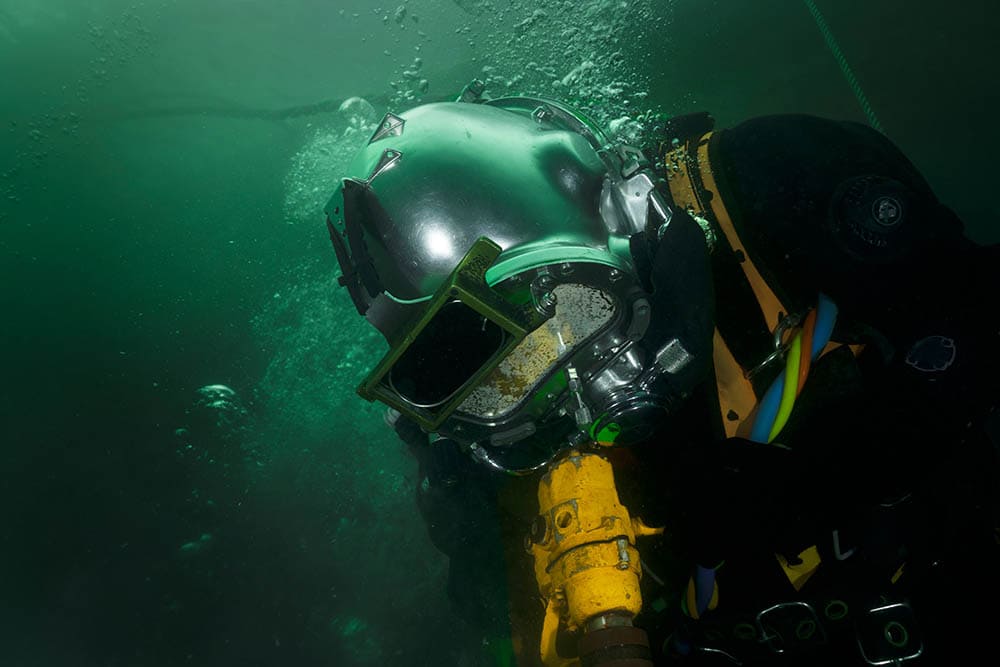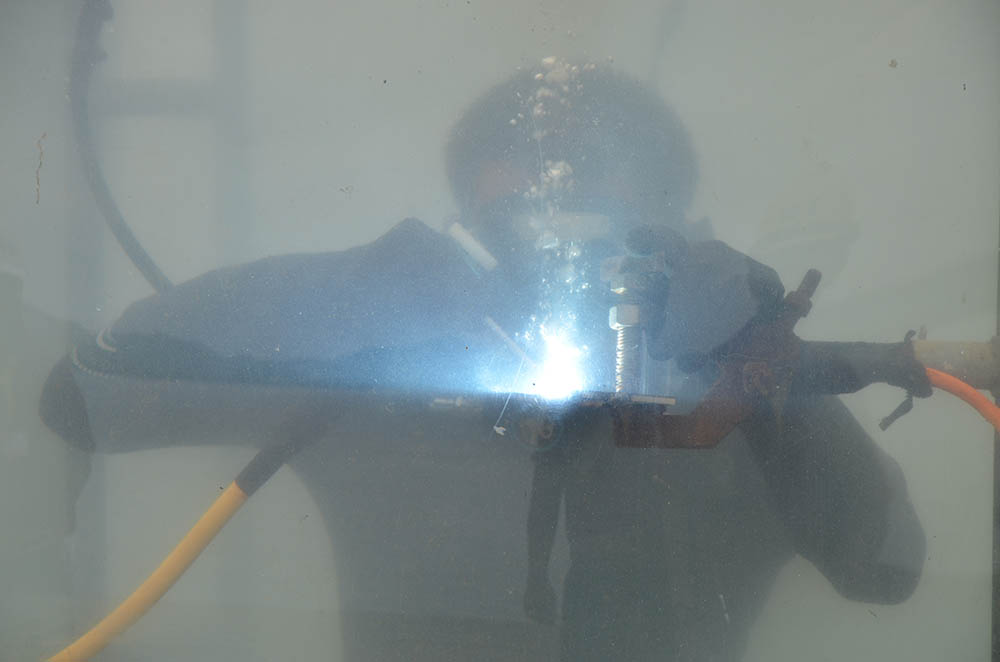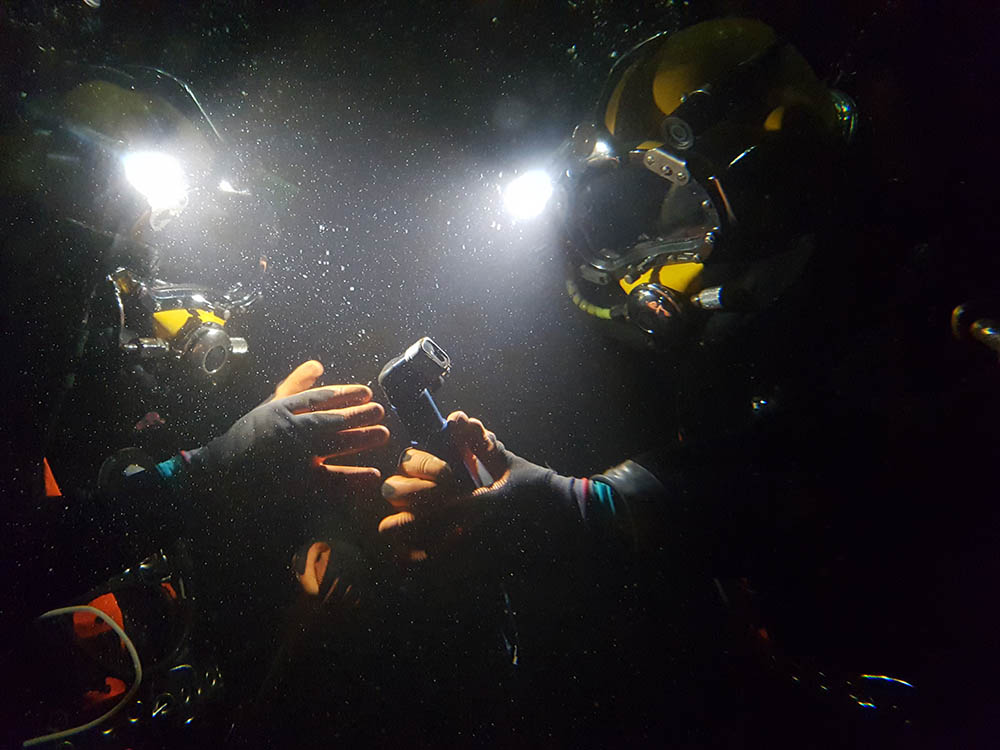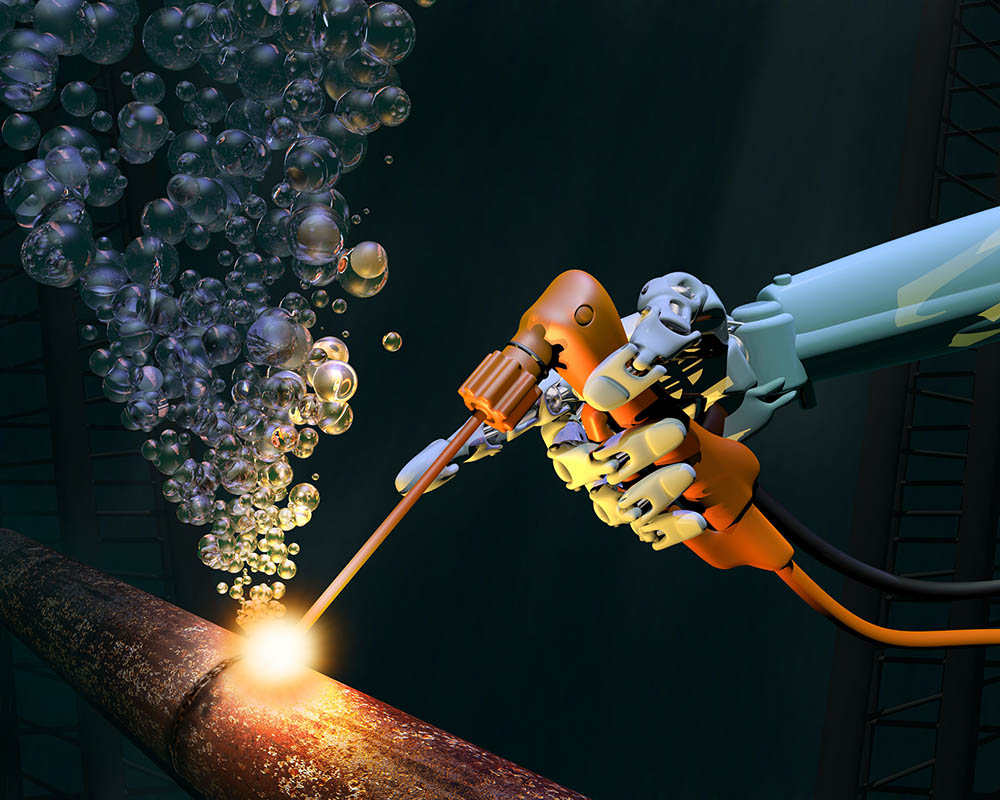Underwater Welding Salary in the UK (2025 Statistics)
Last Updated on

Underwater welding is a branch of the welding industry that involves joining metals below the water surface. If you’re thinking of becoming an underwater welder in the UK, you may want to know the salary range that you expect to earn.
This guide will give you a detailed factsheet of how much money you can earn as an underwater welder. We’ll also break down all the different factors determining your earning potential. So, whether you’re freshly qualified or looking to enhance your skills, this article will be useful in valuing your career.
What Does Underwater Welding Entail?
Underwater welding is where two pieces of metal are joined using an arc with the help of a special wire that you can submerge in water.
It enables you to work in areas with water, such as flooded areas, where it would otherwise be impossible to make a weld using other welding techniques. Underwater welding is also ideal for the equipment below the water surface.
There are two forms of underwater welding: wet welding and hyperbaric/dry welding.

Wet Welding
Wet welding is the most common method of underwater welding. The welded material is immersed in water or a liquid with a specific gravity higher than water. It prevents bubbles from forming in the weld area.
Hyperbaric/Dry Welding
Dry welding uses an electric arc without extra protection against water. You can only use this process when a non-conductive atmosphere is present around the weld area.
You can fill it with helium or nitrogen gas. These gasses have low electrical conductivity, preventing short-circuiting between electrodes and the surrounding environment.
Before discussing the salary of an underwater welder, it is important to know the duties and responsibilities involved as seen below:
- Performing underwater cutting, grinding, and welding operations using power tools or torches.
- Read blueprints and follow safety procedures at all times.
- Set up and operate welding equipment.
- Track the progress of welds and identify areas where they need improvement.
- Inspect welds for defects and make repairs as necessary.
- Perform basic mechanical maintenance on equipment to ensure the equipment continues to operate well.
- Perform underwater repairs on ships and other marine vehicles. They cut out damaged areas with torches or plasma cutters.
- Determine the type of welding process to use based on the material and application.
- Modify materials and equipment for underwater diving.
Due to the nature of their work, underwater welders may have to travel often from one job site to another. Also, they may need to spend long periods away from home.
They may be at sea or on land during training exercises before being allowed to complete their first project as underwater welders.
Average Salary of an Underwater Welder in the UK
The average salary of an underwater welder in the UK is £69,911. This translates to £33.61 per hour.
Entry-level underwater welders with one to three years of experience earn £49,501. On the other hand, experienced underwater welders with more than eight years of experience can make £86,556 annually.
Besides the salary, underwater welders also receive £1,643 as bonuses annually.
Underwater welding is a competitive field. Most employers will offer competitive salaries and benefits to attract the best candidates.
Here’s a breakdown of an underwater welder’s salary in the UK.
| Level | Salary (Per Year) |
| Entry-Level Underwater Welder | £49,501 |
| Senior-Level Underwater Welder | £86,556 |
| Average Salary | £69,911 |
Factors Affecting the Salary of an Underwater Welder
Mostly, underwater welders are paid per project. The type of job and location are major determinants of the salary paid. Besides that, here are more factors that can affect an underwater welder’s salary:
Experience
Your seniority level within the industry plays a significant role when determining your pay rate. An entry-level position will receive less pay compared to an intermediate level or above.
On the other hand, a seasoned veteran should command more than someone who has only been working in the field for a couple of years or less.

Education Level
Underwater welders need extensive training to become certified in the UK. The more education you have, the more you’ll earn.
The most common degree for underwater welders is an associate’s degree. But many employers also prefer to hire those with a bachelor’s degree or higher.
Certifications
Certifications can also increase your chances of getting paid well. They show proof of your qualifications and convince employers that they can trust you with their equipment and other resources.
Company Size
An underwater welder working for a large company will earn more than someone working for a small company. There’s more demand for their services in larger companies than in small ones.
Larger companies also have better benefits packages that make them more attractive to employees.
The Type of Work Performed
Underwater welders perform different types of tasks, including underwater hull maintenance and repair, as well as pipeline construction, inspection, and repair.
Each type needs different training and experience levels. Consequently, each offers different pay scales.

Do Underwater Welders Receive Benefits and Bonuses?
Yes, underwater welders receive benefits and bonuses in many cases. The type of benefits depends on their contract with the employer. Some employers offer health care plans which include dental, vision care, and prescription drug coverage.
There are also retirement plans to ensure an employee’s life after retirement is well catered for. Life insurance policies pay out death benefits if a welder dies on the job or if they become disabled due to an accident at work. Some employers give bonuses based on performance or seniority instead of offering benefits outright.
Is Underwater Welding Dangerous
Welding needs dexterity and precision, and welders take pride in knowing they are good at what they do.
But as they also enjoy a high level of respect, demand for their services, and a high salary, it is worth noting that they face one of the most strenuous working conditions with several challenges, as seen below:
Electric Shock
One of the biggest risks underwater welders face is electric shock. However, they mitigate the risk of being electrocuted by wearing special gear such as rubber gloves and boots.
Drowning
Drowning is another big risk underwater welders face. If there are problems with oxygen supply or breathing apparatus, one can drown. But the extensive training they undergo about safety precautions comes in handy.
Decompression Sickness
Decompression sickness occurs when divers go too deep into the water and come back to the surface too fast. If this happens, nitrogen bubbles will form in their bodies, causing serious health problems like paralysis and even death.
Marine Wildlife
Marine wildlife is one of the biggest risks underwater welders face every day while working in the deep sea. The most common types of marine wildlife include dolphins and sharks. They can pose a danger to those working on a ship or a platform underwater if they get too close.
How Do You Become an Underwater Welder in the UK?
Underwater welding is a highly specialized skill that needs intensive training and experience.
First, you must complete a basic welding course to know how to weld metal and become an apprentice welder. You’ll also need to pass an exam on your practical skills.
Once you’ve completed your apprenticeship, you can start work as a trainee. You’ll be under the supervision of an experienced diver or supervisor.
Here are the steps of becoming an underwater welder in summary:
- Learn the trade through a welding course.
- Get a job as a welding apprentice.
- Get a job as a diver, and then learn how to weld underwater.
- Become an experienced welder and then train as an underwater welder.
Final Thoughts
Do you want to make more money and enjoy the work that underwater welding offers? If yes, this is a good start. The job needs several qualities and skills, so you must be good at what you do. But if you’re determined and have the needed skills, you can earn a high salary in this line of work.
Remember that there are different career paths that you can explore once you’ve completed your welding training. They can prove beneficial depending on the type of work you’re looking for.
You may also be interested in: How Much Is A Welding Engineer Salary In The UK?
